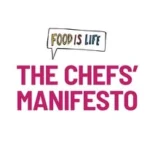
Meaza Getachew
Senior Associate, Global Policy and Advocacy at 1,000 Days
Tell us about your organisation.
1,000 Days started as a partnership in 2010 following the groundbreaking scientific evidence around the vital window of opportunity between pregnancy and a child’s 2nd birthday – the critical time when a child’s brain begins to develop and when the foundations for their lifelong health are built. 1,000 Days works to drive more significant action and investment to improve nutrition for women and children in the U.S. and around the world.
How is your work contributing to SDG2?
1,000 Days serves as the Secretariat of the International Coalition for Advocacy on Nutrition (ICAN). Established in 2013 following the first Nutrition for Growth Summit (N4G), at which $4 billion was committed to high-impact nutrition programs, ICAN includes a broad range of international NGOs, advocacy organisations, and foundations all working around the shared goal of ending hunger and malnutrition in all its forms by 2030. Through ICAN, organisations collaborate on advocacy efforts focused on securing political and financial commitments to end malnutrition in all its forms everywhere.
What is your best food memory?
My best food memory is travelling to my home country of Ethiopia as a 6-year-old and getting to learn traditional (and spicy!) recipes from close family and friends. I remember making injera for the first time by hand and being amazed at how all the “eyes” form as the bread bakes. Like most 6-year-olds, I was pretty naïve and was shocked to see my cousin picking an egg from a hen’s nest then cooking it – who knew?! This trip taught me the importance of treating other life and our planet with respect, and while I was familiar with Ethiopian cuisine and would watch my mom cook all the time in the U.S., it wasn’t until that trip that I learned how culturally important food can be.
What else would you like to share with other Hub members?
Good nutrition plays a critical role in the successful achievement of S DG2, and 2020 will be an essential year for building more incredible momentum and attention to nutrition. To build on the success of the 2013 N4G, 1,000 Days will be leading ICAN in its global advocacy efforts as we work towards the 2020 Nutrition for Growth Summit, which the Government of Japan will host in Tokyo. Not only will many of the commitments made in 2013 be running out, but 2020 will mark the start of the final decade to reach SDG 2. The 2020 N4G Summit will be crucial to mobilizing new SMART commitments in response to the ongoing global need, bringing us closer to achieving SDG2 by 2030.
DG2, and 2020 will be an essential year for building more incredible momentum and attention to nutrition. To build on the success of the 2013 N4G, 1,000 Days will be leading ICAN in its global advocacy efforts as we work towards the 2020 Nutrition for Growth Summit, which the Government of Japan will host in Tokyo. Not only will many of the commitments made in 2013 be running out, but 2020 will mark the start of the final decade to reach SDG 2. The 2020 N4G Summit will be crucial to mobilizing new SMART commitments in response to the ongoing global need, bringing us closer to achieving SDG2 by 2030.

Peg Willingham
Head of Advocacy and Policy, HarvestPlus
Tell us about your organisation.
HarvestPlus works with partners around the world to develop staple food crops rich in vitamin A, iron, or zinc, which are essential to good health. This benefits farming families, especially children and women, who subsist on nutrient-poor crops like rice, wheat or corn and who have very limited access to fruits, vegetables, protein, vitamin supplementation or commercially fortified foods. Biofortification uses conventional crop breeding techniques to enrich seeds with micronutrients naturally. More than 38 million people are growing and eating these more nutritious foods. We have country programmes in Africa, Asia and Latin America, and we are part of the CGIAR, a non-profit global agricultural innovation network whose vision is a world free of poverty, hunger and environmental degradation.
How is your work contributing to SDG2?
We help promote SDG 2’s call for “safe, nutritious and sufficient food.” SDG2 indicators include reducing undernourishment (which includes micronutrient deficiency) and stunting, which is caused in part by a lack of zinc and iron. Biofortified foods are specifically developed to meet the nutritional needs of women and young children.
What is your best food memory?
I have been lucky to live and travel all over the world and eat – or pretend to eat! – a lot of exciting foods, but my favourite food memory is remembering the amazed expression on my daughter’s face the very first time she tasted cake on her first birthday. Up to that point, she had only eaten carefully selected, nutritious food – and, of course, that is what we should all be eating! – so she was surprised to discover chocolate frosting.
What else would you like to share with other Hub members?
Micronutrient deficiency, which affects two billion people worldwide, leads to blindness, weakened immunity, stunted brain development, haemorrhage during childbirth, and other serious health problems. Today, more than 300 varieties of micronutrient-enriched food crops are available or being tested in 60 countries.
Peer-reviewed, published clinical trial data demonstrate that these foods reverse iron deficiency, improve night blindness and cognitive and physical performance, reduce days spent with pneumonia and fever, and dramatically reduce the prevalence and duration of diarrhoea in young children.



